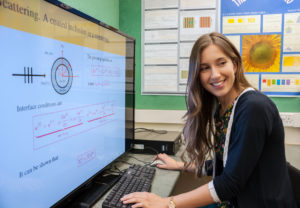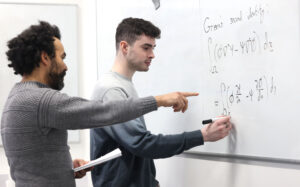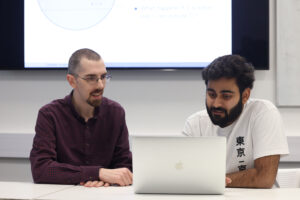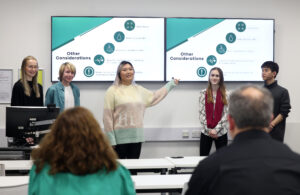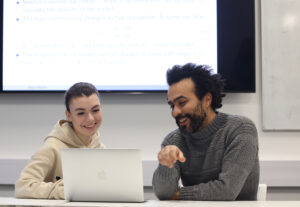How you'll learn
You will be taught through a diverse blend of contemporary engaging teaching methods, including lectures, tutorials, practical classes, problem classes, workshops, independent study, and supervised project work.
The department of mathematical sciences offers a vibrant, stimulating, and supportive learning environment with highly motivated and exceptionally qualified staff, renowned for their world-leading research and teaching.
In year one, lectures are supplemented by a thorough system of small-group tutorials and computing work is carried out in supervised practical classes. Key study skills, presentation skills and group work start in first-year tutorials and are developed later in the programme. The emphasis in most modules is on the development of problem-solving and critical thinking skills, which are regarded very highly by employers.
How you're assessed
The main modes of assessment are examination and coursework. Most Maths modules are assessed by a two-and-a-half-hour examination at the end of the semester, in January or May, but many have an element of coursework assessment. This might be through homework, class tests, mini-project work or key skills exercises. You will be taught by internationally recognised experts within a friendly department.
Liverpool Hallmarks
We have a distinctive approach to education, the Liverpool Curriculum Framework, which focuses on research-connected teaching, active learning, and authentic assessment to ensure our students graduate as digitally fluent and confident global citizens.
The Liverpool Curriculum framework sets out our distinctive approach to education. Our teaching staff support our students to develop academic knowledge, skills, and understanding alongside our graduate attributes:
- Digital fluency
- Confidence
- Global citizenship
Our curriculum is characterised by the three Liverpool Hallmarks:
- Research-connected teaching
- Active learning
- Authentic assessment
All this is underpinned by our core value of inclusivity and commitment to providing a curriculum that is accessible to all students.

